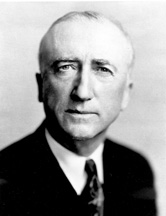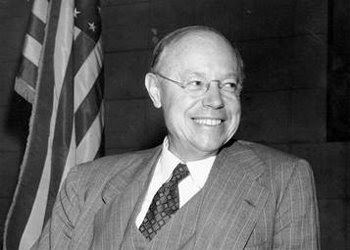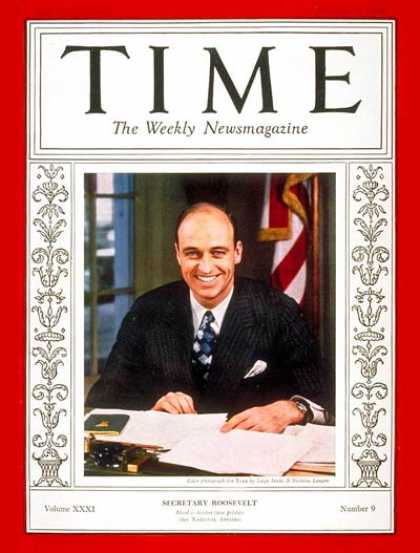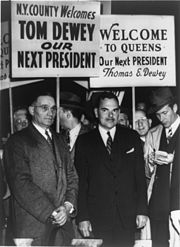
The Breaking of Peace: The James Byrnes Presidency
The 1944 Democratic National Convention was being held in Chicago, Illinois. It is regarded where President Franklin Delano Roosevelt made his last great decision. The bosses of the Democratic Party told FDR, that his Vice President Henry Wallace was too controversial, and would have to be replaced. Roosevelt reluctantly agreed, and chose his good friend, and Secretary of State James F. Byrnes of South Carolina as his running mate. The bosses were appalled. Byrnes was well know for occasional rants against Labor Unions, and every once in a while, anti-Catholicism. Instead, the Party pushed for Roosevelt to choose Harry Truman, a moderate from Missouri. But FDR was wary, he knew he was in ailing health, and he would rather trust a good friend than a Senator he had barely ever heard of.

On the first ballot, Byrnes would win a plurality of the delegates, winning support from the South and many of FDR's allies. Truman finished in a close second, drawing the support of labor and many in the party's leadership. Senator John Bankhead of Alabama finished in a distant third, drawing support from Southerners. On the second ballot, Truman narrowed the gap with increased support from southerners, though Wallace still barely held on. On the Third ballot, Bankhead dropped out, and his delegates chose Byrnes, giving him the narrow Majority over Truman.
FDR warned Byrnes to give a unifying VP speech at the Convention. Byrnes chose one thing that most Democrats could agree on: Big Business. Even though he had his anti-union tirades, Byrnes loathed nothing more than Big Business, and his 10 minute speech against it unified the Party.

Franklin Roosevelt/ James F. Byrnes: 435 53% (Democratic)
Thomas Dewey/ John Brickner: 99 45% (Republican)
President Roosevelt would easily, if not less easily, defeat the Republican ticket of Thomas Dewey and John Brickner. It was clear to Democratic leaders though that the GOP was beginning to bounce back after twelve years of Democratic Domination. Republican leaders set sights on the 1946 midterms.
On April 12th, 1945, just a few months after being inaugurated for a record Fourth Term as President, Franklin Delano Roosevelt would suffer a cerebral hommege in Warm Springs Georgia. President Roosevelt died that day. Vice President Byrnes was urgently called into the White House, which he learned of the death of his friend. Former Supreme Court Justice, Secretary of State, Governor, and Vice President James F. Byrnes would be sworn in as the nation's Thirty Third President.
Questions, Comments Concerns?
Last edited:







